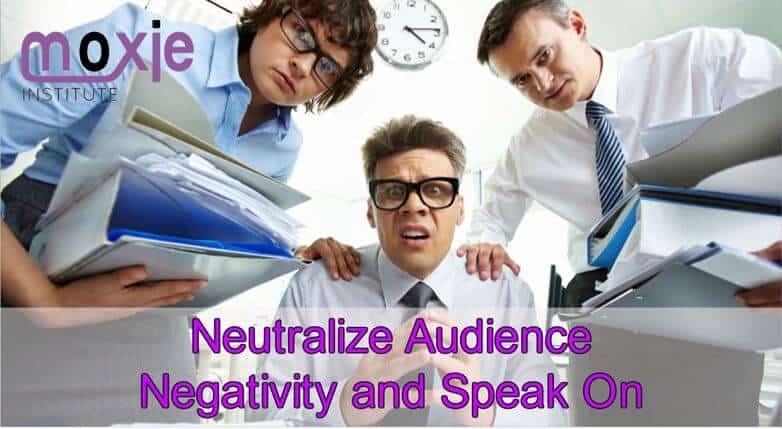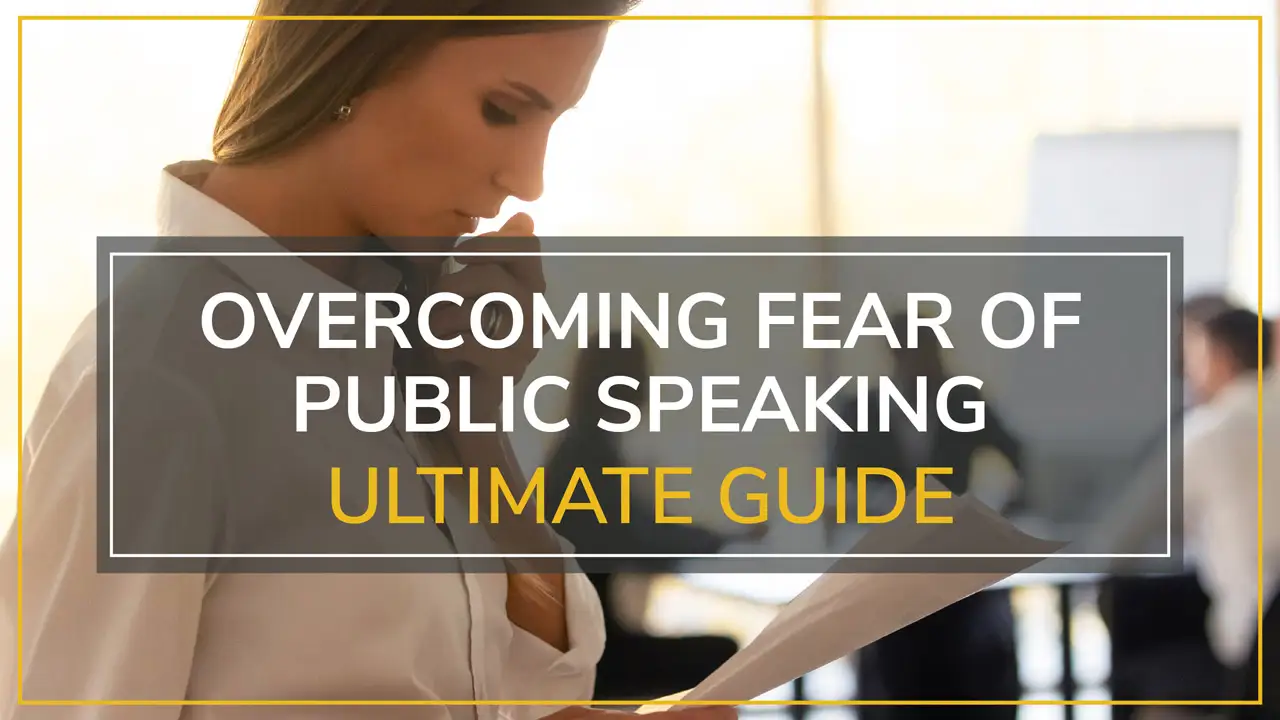So, you’ve just finished your speech and have asked for any questions from the audience. The first person you call on begins to berate you and your topic. It’s official: you have a heckler. How did it come to this? What should you do?
Even well-seasoned speakers can be unsure of how to handle negativity from a crowd. The MOXiE method for handling hecklers comes from an experienced speaking coach who has had to navigate many potentially negative situations. Read on to find out how you should salvage your speech.
Hecklers, for the most part, are reserved for imbibing stand-up comedy attendees. Most audiences want to hear what you have to say and genuinely appreciate the time you take to say it. But hecklers do happen on the rare occasion.
Now, don’t confuse a tough question for a negative reaction. Tough questions signify engagement and discernment on the part of the audience member. Proper preparation will have you ready for any question thrown at you.
No, the heckler is a different breed entirely. Our three-pronged approach for dealing with hecklers will show you what to do to keep your cool and make sure your Q&A session stays on track.
SET GROUND RULES
Before calling on an individual, it helps to make a general announcement: questions must be kept to 30 seconds to allow you to hear from everyone. Most people will respect the time limit—they’re all adults after all—and those who don’t will probably fall into the last two categories.
ASK IF THEY PLAN TO ASK
If someone ignores the ground rules and breaks into a longwinded rant, it’s time to disarm them. Often, asking them if they are going to ask a question either gets them to ask a question or give up their soapbox.
Depending on the thoughtfulness and positivity or negativity of the question, you might either have an insightful dialogue or…
A TEACHABLE MOMENT
The first two tactics didn’t take and you have a full-blown tyrant on your hands. What do you do now?
Let your heckler become a teachable moment for your audience. Point out that this is how an audience member shouldn’t behave. Assure them that language holds power when used correctly, but falls flat when unwarranted and intrusive.
Move on to a productive audience member who wants to engage constructively. Your heckler detracts from your other audience members’ experiences. Don’t let your emotions cloud your judgment and cause you to neglect the people who are there to learn from you.
Other resources suggest embarrassing the heckler by inviting them up to the stage or leaving it up to the audience to decide if they want to hear the person out. Both of these approaches leave much up to chance. Diffusing the situation and moving on is less risky.
A negative person is quite often just that—a negative person. Although irritating and distracting, try not to take it personally. Remain composed and realize the heckler isn’t your fault. Some people just feel the need to be contrarian. Stay calm and move on.
If you are looking for more ways to avoid negativity, check out our post Get Presence: Amy’s TED Talk in Practice.
The MOXIE Institute. The best don’t do it alone.









